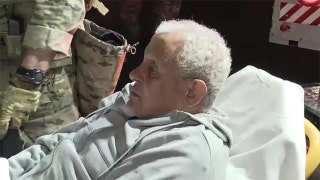SALT LAKE CITY – Mormon leaders are not expected to mention presidential candidates by name at this weekend's church conference, but they may reiterate their push for more public civility and compassion amid a campaign marked by explosive rhetoric and bickering.
The church is careful to maintain political neutrality by refraining from backing one party or endorsing candidates, but Mormon leaders sometimes weigh in on what they consider crucial moral issues, said Armand Mauss, a Mormon scholar and retired professor of sociology and religious studies at Washington State University.
That allows members of the faith to infer which candidates the church favors by comparing leaders' positions on key topics with the campaigns, Mauss said.
This presidential cycle, The Church of Jesus Christ of Latter-day Saints has defended religious liberty after Republican front-runner Donald Trump suggested banning Muslims from entering the U.S. The church also renewed calls for an end to culture wars where people stake out extreme positions.
Church leaders urged a conference of Mormon women last weekend to help refugees in their communities — striking a different tone than Trump and Republican candidate Ted Cruz.
When the church offers guidance on issues that affect political races, members of the faith usually listen, said David Campbell, a political science professor at the University of Notre Dame. He and two others researched the topic for the 2014 book "Seeking the Promised Land: Mormons and American Politics."
"We found quite consistently that Mormons do 'follow the leader,'" Campbell said, "even when the statements would seem to contradict their normal political predisposition."
Most members of the religion are Republican, and they don't seem to like Trump. Cruz, a Texas senator, has defeated the front-runner in Utah, Idaho and Wyoming — all states with large Mormon populations.
Members likely do not take to the billionaire's brash style, which is jarring in a culture that values politeness. The church's statement pushing back against Trump's Muslim rhetoric also probably influenced members, Campbell said.
The message on refugees is the latest sign the Mormon church is not in lockstep with the GOP. In recent years, the religion has been more open to immigration reform and discrimination protections for the gay community than most Republicans, said Patrick Mason, associate professor of religion at Claremont Graduate University in California and Howard W. Hunter Chair of Mormon Studies.
"They don't feel trapped by the Republican Party platform," he said.
At the conference Saturday and Sunday that will bring 100,000 Mormons to Salt Lake City, with millions more watching on TV, Mason expects leaders to advocate for less anger and provocation and more tolerance and respect.
Any message will be vague and open to interpretation, he said.
"I don't think any Mormon who supports Trump is going to hear a call for civility and say, 'Wait a minute, I'm going to support Hillary (Clinton),'" Mason said.
Before an election, the church instructs lay leaders to a read a letter in their congregations encouraging members to vote and to choose candidates who will act with "integrity and are wise, good, and honest."
The church isn't likely to break tradition on political neutrality this weekend.
"If they didn't endorse Mitt Romney, they are not going to endorse anybody this time around," Mason said of the 2012 Mormon presidential nominee.







































